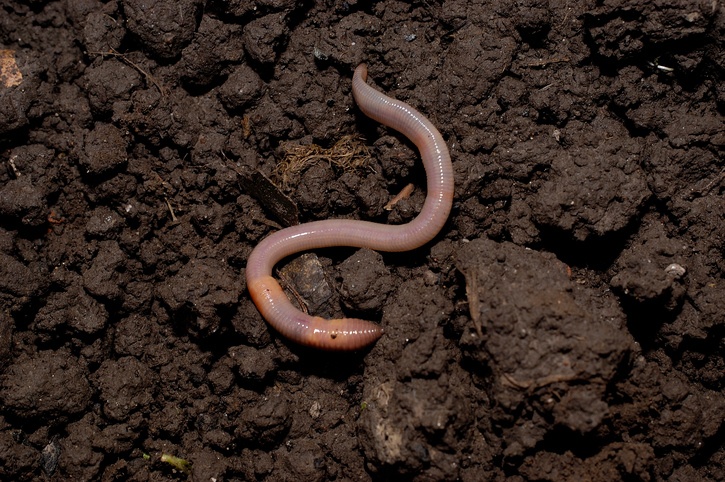
We admit it, earthworms are strange little creatures. These sightless animals have a body made up of rings surrounded by bristles, and they don’t move by slithering around like snakes.
Instead, they compress and expand with their rings and bristles, moving straight through the soil.
They’re pretty incredible too – while they weigh on average only around one-thirtieth of an ounce, they can regularly move two-ounce stones, which is about the same as a 150-pound human moving a 9,000-pound boulder.
If you ever watched earthworms make their way through the soil as a kid, you might remember just how cool they can be, but you may not have realized that these creatures also have a key role in soil construction and recycling of organic waste.
They are a part of a network of organisms that turn refuse into nutrient rich soil.
Those nutrients are just one of the benefits of worms for plant growth.
They also perform cultivation functions that increase soil porosity and allow oxygen into the roots.
It was in the late 19th century that Charles Darwin published his highly influential book, The Formation of Vegetable Mould through the Action of Worms with Observations in their Habits.
People have likely been aware since the dawn of agriculture, of the beneficial effects of earthworms on the soil, but Darwin is considered the first to study the activity of earthworms in a systematic way and to observe in detail the conversion of dead plant material by worms into soil organic matter.
Let’s take a closer look at how earthworms benefit your garden.
1. Improved soil nutrient availability
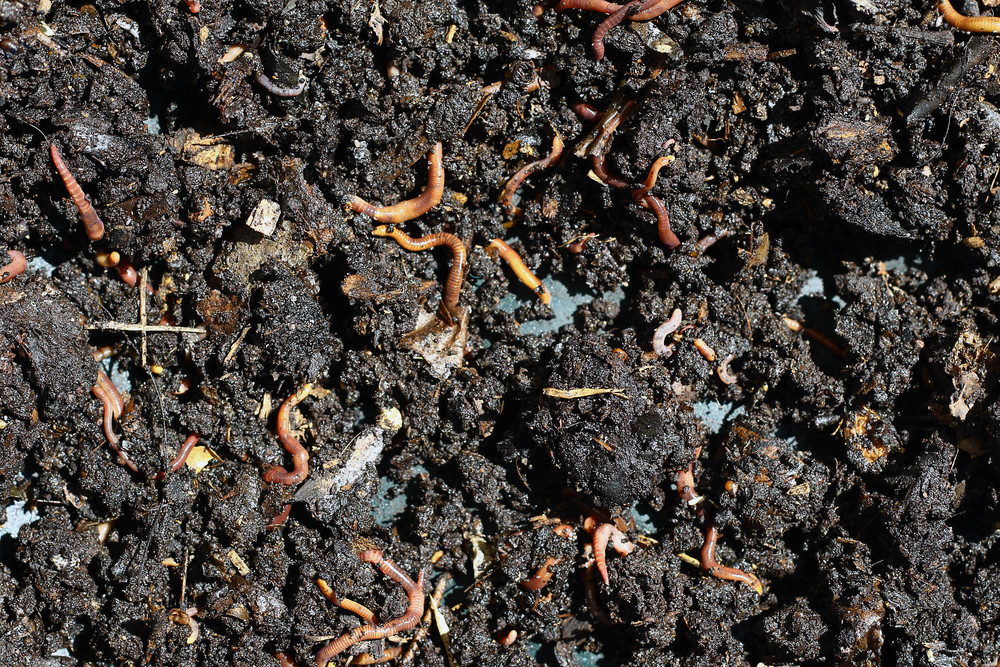
Earthworms help create humus, which is a dark brown-black type of soil that holds important nutrients in place for plant growth and use.
The worms feed on plant debris such as manure, grass, leaves and dead roots, as well as the soil.
The digestive system of the worm concentrates the mineral and organic compounds in the food they consume, so their casts become richer in available nutrients than the soil around them – castings are the fertilizer the worms provide AKA, worm poop, derived from their processing of organic waste.
Nitrogen in the casts is readily available to plants, who will be more likely to thrive.
When they die, the body of a worm decomposes rather quickly, which further contributes to the nitrogen content of the soil.
A New Zealand study of earthworm casts, found that they release four times more phosphorus than surface soil.
They often leave their nutrient-rich casts in their tunnels, which provides a more conducive environment for plant root growth.
The tunnels also allow roots to penetrate deeper into the soil, where they can reach extra moisture and nutrients. Earthworm tunneling can also help incorporate surface applied lime and fertilizer into the soil.
2. Better drainage
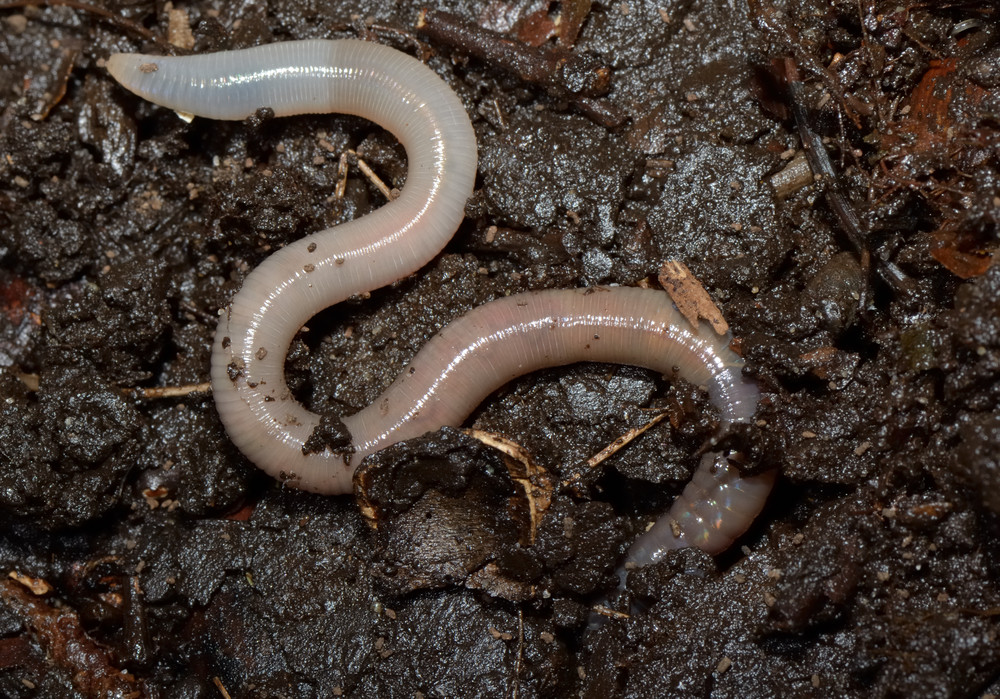
Earthworms also improve drainage and prevent soil erosion and waterlogging, as their extensive channeling and burrowing help to loosen and aerate the soil and improve soil drainage.
Research has found that soil with earthworms drain as much as 10 times faster than soil without earthworms.
In zero-till soils, where worm populations are high, water infiltration can be up to 6 times greater than in cultivated soils.
The tunnels they make also serve, under the influence of rain, as irrigation and gravity, as passageways for lime and other material.
It is the mixing, blending and burrowing the worms do that significantly improves soil draining while also increasing aeration and the water holding capacity of the soil.
3. Improved soil structure
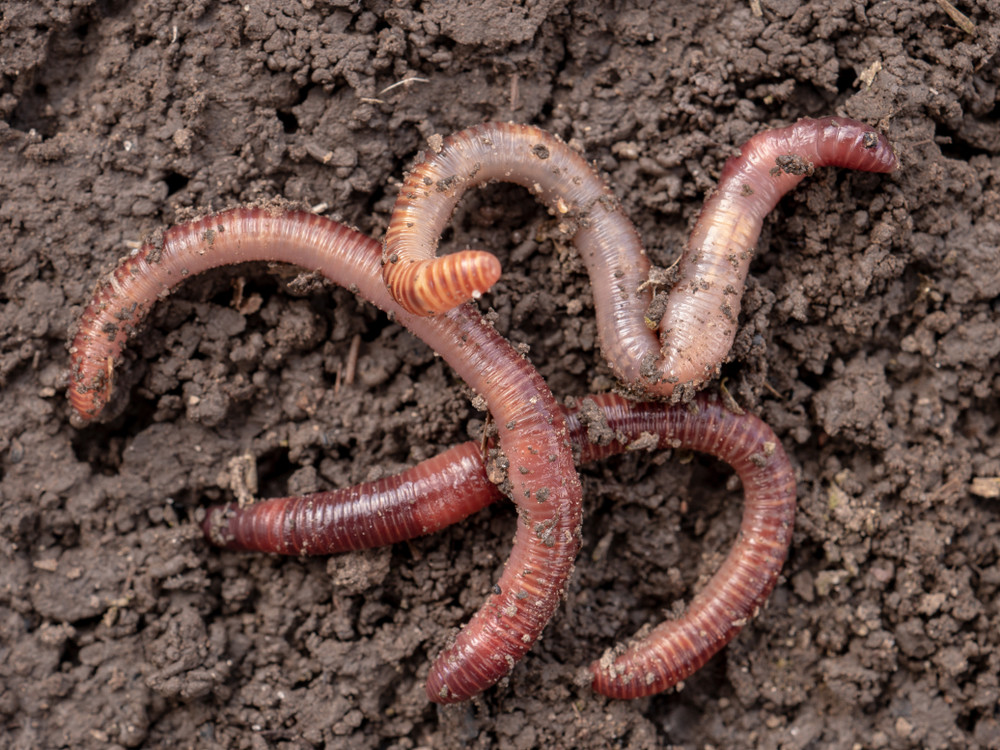
The casts of earthworms help to cement the soil particles together.
These sticky substances “glue” the mineral particles together in the aggregates and, at the same time, in a kind of mutual relationship, the mineral particles help to protect the organic matter, to some extent, from microbial attacks, thus preserving it for a longer time in the soil.
When your soil has worm castings, they help to improve the structure and fertility of every type of soil, even on reclaimed land that has little or no topsoil.
As the castings are water soluble, they have an immediate positive impact on plant growth.
As it is the soil structure that determines its resistance to erosion and whether future human generations will have any soil at all, it’s easy to see just how important the earthworms are.
Research conducted on farms found that the most productive pastures contained up to 7 million worms per hectare, weighing 2.4 tons.
They also discovered a close correlation between pasture productivity and total worm weight.
How To Attract Earthworms To Your Garden
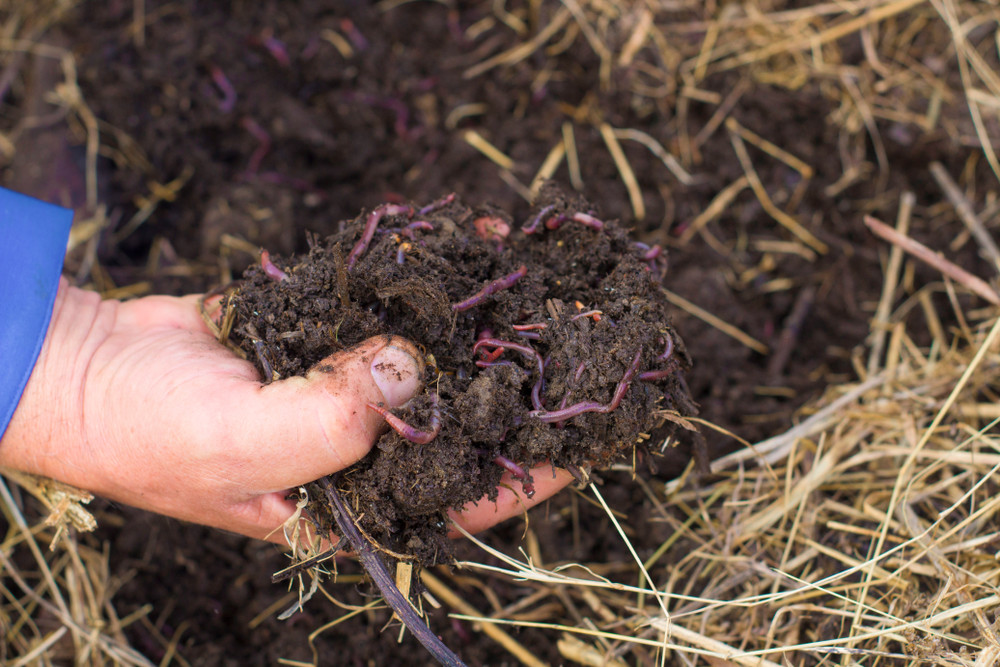
If you have no earthworms, or very few, attracting them to your garden can allow you to take advantage of all of their benefits.
There are multiple types of earthworms, ranging in size from microscopic to several feet in length.
The most common found in home gardens are night crawlers and field worms, which both thrive in cool soil and can be spotted on the surface of the soil when it’s dark, or during a rainstorm, when their burrows flood.
If you shine a light on them, they’ll retreat back into the soil.
The earthworms typically used for compost bins are branding worms and red worms, which don’t survive in your ordinary garden soil – they’re used in worm composting boxes and compost piles, and do well provided the pile doesn’t get too hot.
To help encourage them to make homes in your soil:
Add organic material.
If there are few earthworms in your garden, it may be because your soil is compacted or low in organic material.
You can add chopped leaves, straw, grass clippings, dead roots, semi-decomposed compost, and animal manure to your garden which will allow worms to thrive.
Earthworms feed on soil and dead or decaying plant remains, including straw, leaf litter and dead roots as well as animal dung.
Dry or wet?
Earthworms prefer damp and cool environments, but not too dry, too wet or cold. The thicker the soil canopy, the easier it will be to maintain those desirable conditions.
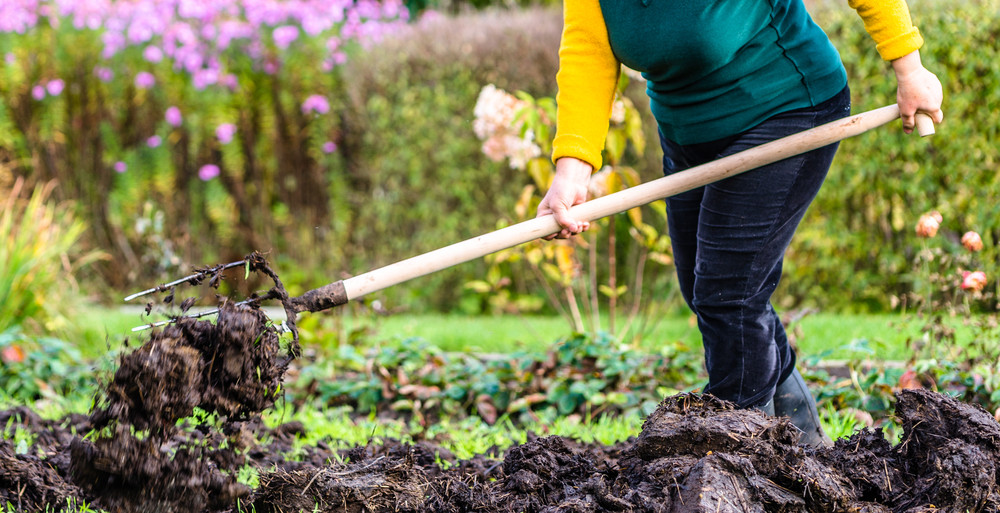
Manure and compost.
Manure and compost help to stimulate earthworm proliferation. That’s why, if you can, you should have some livestock around to provide an immediate source of compost.
While you could create a worm-friendly spot without animals, importing manure-based compost in, provided transportation energy remains relatively cheap, having your own livestock is best.
Fertilizer.
Adding nitrogen-rich compost helps worms to thrive, but synthetic nitrogen fertilizers tend to have the opposite effect, repelling earthworms.
The creatures are very sensitive to chemical and physical changes in the soil, and will quickly flee the salty environment that’s created when chemical fertilizers are applied.
For that same reason, chemical pesticides are a definite no.
Avoid deep tilling.
You should avoid deep tilling in order to prevent damage to the earthworm burrows which could also cause them to flee.
The animals prefer undisturbed soil – that tillage not only chops many of them up, it destroys those tunnels, which is why some of the most productive gardeners practice shallow or no tillage to avoid disturbing the earthworm community.
Ensure proper soil pH: Above 4.5.
Earthworms don’t like acidic soils with pH levels less than 4.5. The addition of lime will raise pH while also adding calcium. They need a continuous supply of calcium, so are absent in soils lacking in this element.
